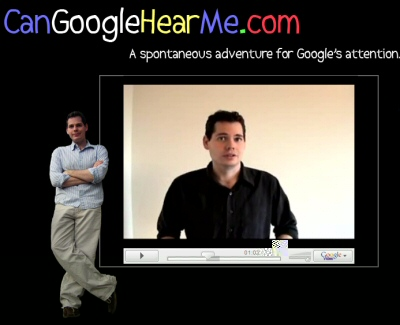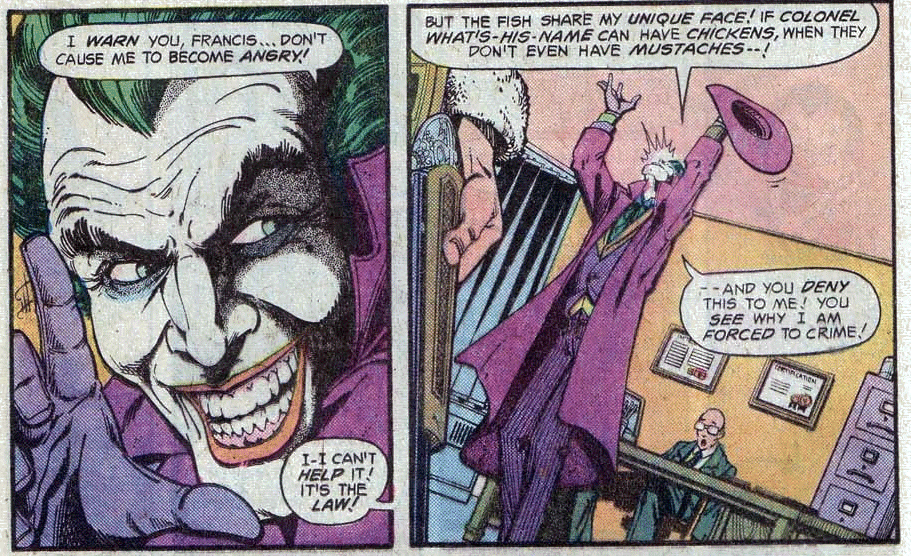
Are psychedelic drugs medicinal? Can you picture yourself walking into the neighborhood pharmacy with prescriptions for ecstasy (MDMA) and psilocybin?
If MAPS (Multidisciplinary Association of Psychedelic Studies) has its way, the days of prescription psychedelics may not be too far away. For those who know the history of psychedelic research, this eventuality has been a long time coming. But others — who may only be familiar with the intense emotions and activities around the "War On Drugs" over the past several decades — may be surprised to learn how much progress MAPS has made.
Jag Davies is the Director of Communications for MAPS, a non-profit research and education organization that assists scientists to design, obtain approval for, fund, conduct and report on research into the healing and spiritual potentials of psychedelics and marijuana. He joined Steve Robles, Jeff Diehl and myself on The RU Sirius Show.
Let it be said that Mr. Davies has the patience of a saint (and a sense of humor). Despite the fact that we were unable to resist the urge to crack drug jokes throughout, Jag managed to convey vast quantities of important information about psychedelic research.
DRUG I: MARIJUANA
RU SIRIUS: We should all drink a toast! You have some good news about marijuana research. Why don't you share some of that stuff with us?
JAG DAVIES: Sure. We just found out on February 12 that a DEA administrative law judge ruled in favor of MAPS in our lawsuit against the DEA.
MAPS would like to design and fund and do the FDA clinical trials necessary to get marijuana approved as a prescription medicine. It's never been put through the FDA clinical trials to see if it meet the standards for safety and efficacy of any other drug under certain conditions.
The reason that hasn't happened is because the National Institute on Drug Abuse (NIDA) has a monopoly on the supply of research-grade marijuana. It's the only Schedule 1 controlled substance where the federal government has a monopoly on the production.
So what MAPS has been trying to do for the past six years is start an independent medical marijuana production facility. We're working with professor Lyle Craker, who's the director of the medicinal plant program at the University of Massachusetts Amherst. He had no history of working with marijuana, but he's a very well rounded botanist. In 2001, we sent NIDA an application, and first they took a year to tell us they had lost it. Their primary strategy is delay. (Laughs) And then they took another three years to reject it. And when they reject an application, there is a formal process where you can request a hearing with a DEA Administrative Law Judge. But the DEA's power is so unchecked that even once the ruling is decided in your favor, they can reject it. So there was this two-year hearing. We were represented by the ACLU and some Washington D.C. law firms. And the case took about two years for the judge to rule on our side. But now the DEA can still decide whether to accept or reject the recommendation. So there's still a lot more work to be done. But it was an 87-page recommendation. The judge rebuked all of the DEA's arguments and explained why NIDA needs to stop obstructing legitimate scientific research. So it's very exciting.
RU: The DEA is famous for ignoring their administrative judges. I remember their Administrative Judge made a strong ruling against making Ecstasy Schedule One in the '80s. And they proceeded to completely ignore it. The DEA is the Politburo of America.
It sounds like you guys are trying to unhook a little Catch 22 there. You can have marijuana experiments, but you can't have the marijuana to do the experiments.
JAG: Yeah. Well, you can't do FDA-approved research without the legal supply, and the only legal supply for research would come from NIDA. So once you get a study approved by the FDA, then you have to go through an entirely separate review process, through NIDA and PHS (Public Health Service),which is part of Health and Human Services. They have three to six months to respond. By contrast, the FDA has thirty days to respond. And there's no formal appeals process. So they basically can arbitrarily decide what they want to do.
JEFF DIEHL: Is it MAPS policy that marijuana should only be available through a prescription?
JAG: Not in the long-term. Our long-term goal is to regulate all drugs for different uses, because we don't think drug prohibition works. It's not sound public policy. But our strategy for the foreseeable future—at least for the next five to ten years—is working only on these medical cases, because that's what the public is most comfortable with. It's really a strategic decision. But we don't think marijuana should be illegal for recreational purposes either.
STEVE ROBLES: But the problem is—going through agencies like NIDA is kind of like being in Germany in 1939 and asking Hitler for Passover off. I mean, they're beyond resistant — they're hostile.
JAG: But Congress does control their funding. So if there was a major political push from Congress… if they felt that there was really going to be a political backlash... In 1989, DEA Administrative Law Judge Francis Young recommended that marijuana be re-scheduled to Schedule 3. And they didn'tdo it. But that would have been much more drastic measure than what we're trying to do. We're just trying to get them to allow for a research supply. What we're asking for is so conservative, really.
JEFF: Are these DEA judges appointed? How do they get in their positions?
JAG:: They're appointed by the Department of Justice. The DEA is part of the Department of Justice.
RU: There doesn't seem to be much percentage in being reasonable about pot for a politician. Even though a lot of people smoke marijuana, there doesn't seem to be a lot of people who feel strongly about it as an issue at the national level.
SR: I always say it needs to be "Datelined" to appeal to the public. Say somebody like Bob Dole is begging for medical marijuana while he's rotting away from cancer.
RU: You guys got support in this recent case from the Senators from Massachusetts—Ted Kennedy and John Kerry. And we all know about John Kerry. (OK, we don't. But I've heard rumors that Kerry still tokes.)
SR: Which explains how he fucked up in the last election. I love pot, but…
JEFF: "Whatever, man. It'll all work itself out." (Laughter)
SR: "I'm not gonna let him kill my buzz." (Laughter)
JAG: We got 38 representatives to sign on to a letter of support before the judge made the ruling. We're headed for a bigger sign-on support letter in the Senate and we've got a few months to formulate a political response. In the '80s when Francis Young made his recommendations, there was hardly any political support. The only organization doing any work was NORML, and they were small and had some issues. There's much more of an infrastructure now behind all of these different drug policy organizations that are going to help us. And there are already 160 congresspeople that voted in favor of the Hinchey Medical Marijuana Amendment. And there's a former conservative Republican representative that is going to be lobbying in support of this case. I can't say who it is. We can't announce it for about a month.
RU: Bob Barr!
JAG: (Laughs) I can't say anything.
RU: Bingo! (Laughter)
JEFF: We got it first! Isn't it the case that everybody is taking all these high-grade mood-altering pharmaceuticals now—all the anti-depressants—stuff that really has a strong effect on your daily functioning. So it seems like it's a little bit more difficult to be against even the study of marijuana as a possible prescription substance.
JAG: Yeah, it's like people are used to the concept.
JEFF:: … of "dosing," basically.
RU: As a culture, we're pretty conscious of chemical mind alteration.
DRUG II: ECSTASY (MDMA)
RU: Let's move on to ecstasy. We're going to do one drug at a time.
JEFF: Should've done that first! It takes too long to kick in, man.
RU: So a while back, MAPS got approval for a study in MDMA-assisted psychotherapy. Where are we at with that?
JAG: It's almost over. They've treated 15 out of 20 patients. It's very slow. There are lots of pre-conditions for the study because it's such a controversial substance. But the results are ridiculous. Their CAPS score—(CAPS is the Clinician Administered PTSD [post-traumatic stress disorder] Scale) is about five times higher than in treating chronic treatment-resistant patients with Zoloft. It's very likely that we're going to be able to go on to do our next set up studies—Phase III studies. And there are a whole other slew of studies that are sort of copying this one that we're doing in a bunch of other places like Switzerland, and Israel, just to be sure.
JEFF: So does it look like MDMA is going to become something that's used pharmaceutically?
JAG: After careful analysis, we decided that MDMA is probably the most likely of any psychedelic drug to get approved. First of all, it has a very gentle sort of pharmacological profile.
But the other reason is sort of interesting. People ask us, "Why don't you try MDE or MDA, drugs without the same cultural connotation." It would be easier politically. But because it was so demonized by the government in the 1980s and 1990s, there has been hundreds of millions of dollars of research done into its risks. So they've done all the work for us!
RU: You mentioned a comparison to Zoloft, the implication being that MDMA could be an effective anti-depressant.
JAG: The difference is that MDMA is not used on a daily basis. That's why there's not a profit incentive.
RU: But what would the prescription be — once a month? Or ten sessions?
JEFF: They didn't dose them daily in the study?
JAG: No, not at all. They do about 15 regular psychotherapy sessions. And then with two or three of them, depending on the study, there are sessions where the person takes either a placebo or the MDMA. It's very methodologically rigorous. It's double-blind and you don't know if you got the placebo or not.
With something like Ritalin, you have to keep taking it every day or every week or whatever. With MDMA, or a psychedelic drug that you use in conjunction with therapy, which is how we're trying to get it approved, you would only use it maybe five times at the most. So the incentive to make money isn't there.
JEFF: What kind of dosage did they use? Was it comparable to a street hit?
JAG: Actually, it's a bit larger than a street hit. It's 125 milligrams pure. And then we actually got approval about halfway through the study to make a couple of changes. One of them was to take a booster dose, basically, although we call it a "supplemental" dose. They take another 60 milligrams about an hour and half into it.
JEFF: You're not calling it "a bump"? (Laughter)
RU: It's been easier to do studies in Europe for a while, hasn't it? I seem to remember that stuff was happening in one of the Scandinavian countries in the early '90s.
JAG: There's been work in Switzerland, although not with psychotherapy. And we just got a study that's already ongoing in Switzerland with MDMA-assisted psychotherapy for post-traumatic stress disorder. And then there's another study that's about to get approved this year for LSD-assisted psychotherapy for end-of-life anxiety. And that would be the first LSD psychotherapy study, or the first real study looking at LSD's benefits at all, anywhere in the world.
RU: Most of the countries in Europe don't have a drug war at the level of intensity that we have here. There have been some experiments allowed, and there have been various levels of drug decriminalization in a lot of countries. In Amsterdam and London, you can buy mushrooms quasi-legally. So why aren't we hearing about how their societies have been changed by the relative freedom to experiment with psychedelic drugs? Why aren't we hearing, "Wow. Look at what's happening here. Everybody's so enlightened!"
JAG: Well, things are better. At least as far as drug prohibition-related harm goes, it's a lot better. Their prison populations are incredibly lower. But I think more people use marijuana and psychedelics in the U.S. than in those countries. Just because they're legal, that doesn't mean more people are using them.
RU: A few days ago, I saw an item in the newspaper which said that people are now abusing more prescription drugs than illegal drugs in America. That's a result of the war on drugs.
JAG: Yeah, vastly many more people die every year from prescription drugs in America than from illegal drugs, even despite the harm that's caused by all the misinformation about illegal drugs.
SR: I've heard that Spain was doing some Ecstasy research.
JAG: The first MDMA-assisted psychotherapy study in the world was sponsored by MAPS and approved in 2001 in Madrid. It started but was shut down by the Madrid anti-drug authorities after there were positive reports in the press.
RU: There's nothing worse than good news to the medical establishment.
JAG: We've been trying to start a study up there again. In the mean time, we've got studies approved in Charleston, South Carolina, at Harvard, in Switzerland, and in Israel. So we think it's a bit more politically feasible now. Spain might be able to swallow it… so to speak.
RU: I interviewed (MAPS President) Rick Doblin about a decade ago about the relationship between MAPS and the FDA. And there was a loosening up about psychedelic research within the FDA that hadn't occurred since the 1960s. It started actually under Bush I in the '80s and continued under the Clinton administration. Has the relationship with the FDA changed?
JAG: The FDA continues to be very supportive. Since 1990, the FDA has been supportive of our protocols. The problems have really come more from the DEA and NIDA. In order to do any study, you need approval from the DEA to have a schedule 1 license to actually possess the drug for the study. It's usually been the DEA that has held everything up, because the FDA is more based around science, and the DEA is based more around criminal justice and law enforcement.
RU: Very few people know that in the middle of all the drug hysteria, the FDA had started to allow these kinds of experiments to begin. It's kind of amazing.
When I skim the MAPS site, I see all this stuff about approved protocols and activities that are going to lead up to tests, and then maybe an occasional test. But has there been any results?
JAG: Well, yeah, there have been some results. We finished the Phase I MDMA studies. There's three phases to FDA approval. The Phase I studies are the safety studies, and those took quite a long time. The Phase II studies aren't finished yet, though. And we did studies with vaporizers and marijuana. For example, we found that water pipes are worse for your lungs than smoking a joint.
SR: When that news came out I just about cried.
JAG: We've done all sorts of background research too. We did survey studies about LSD and cluster headaches and about what happens when you hook people on Ayahuasca up to EEGs.
The background research sort of assembles the literature needed to get these drugs approved as prescription medicines. That's really our main focus — getting the drugs approved rather than just doing basic science.
DRUG III: PSILOCYBIN
RU: The big news item last year was about results from psilocybin experiments conducted at John Hopkins. A New York Times headline read: "Mushroom Drugs Produce Mystical Experiences." Next they'll be telling us that bears shit in the woods.
SR: "Beans cause gas in humans."
RU: You guys weren't directly involved in this one, right?
JAG: No, we didn't sponsor that study. That study was amazing. This team of researchers has a different approach than MAPS. They kept their entire protocol secret and kept it totally hidden from the media right until the day of publication. This was sort of basic background science research on mystical experiences. And they actually used grant money from NIDA for the study. NIDA disavowed the study afterwards. The former director of NIDA, Bob Schuster, wrote one of the commentaries for it. He said it was great. He loved it, but of course the current director of NIDA couldn't go along with that. So they sort of issued a rebuke saying, "Don't listen to this."
RU: Do you hear about this a lot? Has this changed the culture around moving this work forward? It was all over the media.
JAG: Yeah, I think it definitely helped legitimize psychedelic research.
RU: They were basically doing one of Timothy Leary's studies from the early 1960s over again.
JAG: It was the follow-up on a study that was done in the 1960s called "The Good Friday Experiment" where they gave psilocybin to divinity students at a chapel somewhere in Boston. And they had them fill out all these questionnaires and asked them about whether or not they had any mystical experiences. They found that most of them had the most mystical experience of their lives. So the John Hopkins Study actually sort of repeated that same methodology with a new group of subjects who weren't familiar with the drug.
RU: But they weren't divinity students were they?
JAG: No, I think they were a more general population.
DRUG IV: IBOGAINE
RU: On this show a few weeks ago, we were talking about Ibogaine as a cure for heroin addiction. What data do we have now about Ibogaine?
JAG: We have a study approved that's just starting right now. It has full government approval in Vancouver. Ibogaine is illegal in the U.S., but it's legal in Canada and Mexico. So we're sponsoring an observational case study of patients treated at the Iboga Therapy House in Vancouver. No one's actually done the long-term follow-up research to see whether – six months or two years later — people relapse into using opiates or not, and whether they relapse in a way that's dangerous. All we have at this point are various anecdotal reports. We're doing a similar study at a clinic in Mexico.
It lasts, like, 24 to 36 hours. The last 12 hours people report feeling sort of physically paralyzed. It's a very intense experience so you have to really want to do it to do it.
RU: If you think Ayahuasca is not fun...
JAG: The government hasn't really had to fight it off because it hasn't spread recreationally.
JEFF: I heard a story on "This American Life" about a guy who was administering Ibogaine treatments to junkies that he knew, because he himself had been a junkie. And it was underground. He wasn't a doctor. He didn't have any medical training. He just started a program and tried to develop it but somebody died under his treatment. And he kind of went off the deep end because he felt so guilty about encouraging this guy to take Ibogaine who died.
Is Ibogaine dangerous?
JAG: Compared to other psychedelics, it does interact badly with certain dangerous pre-conditions because it lasts for so long. People with heart problems shouldn't take it — people with really high blood pressure. But there are tons of people like that all around the country – these sort of underground therapists who have been practicing with Ibogaine. A lot of the people support MAPS. They want to be able to use it above ground as part of their practice.
JEFF: Unfortunately, this guy wasn't even a therapist or anything. He was just kind of an ex-junkie who'd gone straight and wanted to…
RU: ...help his friends. How many of those people would have died from heroin overdoses?
DRUG V: KETAMINE
RU: Speaking of dangerous drugs, I was watching cable news one day when one of those screen crawls went by, and it said something like "Research finds low doses of ketamine effective for depression." Do you know anything about this?
JAG: Yeah. A study that was funded by the National Institute on Mental Health showed very promising results for ketamine as an anti-depressant. I think the media portrayal was a bit over-optimistic because Ketamine has its drawbacks – some people see drawbacks in daily dosing because it can cause dependence. But then again, so do the psychiatric drugs that are being approved today. And ketamine was showing much better results than those.
RU: Do you know what the dosage level was on those experiments?
JAG: I know it was very low. They were functioning doses, not K-Hole doses.
DRUG VI: LSD
JAG: Most other psychedelics we study don't have... like, no one's ever died from an LSD overdose.
SR: And believe me.... (Laughs)
JAG: I'm sure some people have tried!
RU: Do you ever watch the TV show "House"? This doctor is always taking all kinds of drugs. He's a vicodin addict for one thing. On one episode, he gives himself a cluster headache and then injects acid to cure it. The show is actually very smart about drugs. Anyway, what's up with LSD and psilocybin as a cure for cluster headaches?
JAG: I'll give you a bit of background. Cluster headaches are a type of migraine that lasts for weeks at a time. They're really difficult to treat. I've read that up to a fifth of people with cluster headaches end up committing suicide because it's so difficult to treat and so painful.
A few years ago, people started noticing that taking threshold doses of psilocybin and LSD at regular intervals would break their cluster headache cycle. And it was the only thing that would do it. So we did a survey study that's finished and now there's a study that's been approved at Harvard. So all these people who wouldn't use psychedelics otherwise have been using the drug to treat their cluster headaches.
JEFF: Do they feel any psychedelic effect?
JAG: Yeah, some people do it in slightly sub-psychedelic doses but it can still have the effect.
RU: Do they start believing in UFOs?
JAG: (Laughs)
See Also:
The Great Wired Drug Non-Controversy
Hallucinogenic Weapons
Paul McCartney On Drugs











